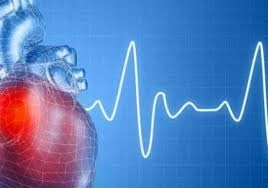
Irregular HeartbeatTypes and Modern Treatment Options with Dr. Mohamed Abdo
Published on: 2025-06-18 | Written by: Dr. Muhammad Abdo, Internal Medicine
Irregular heartbeat is one of the most common cardiac disorders and can cause discomfort, palpitations, dizziness, or even fainting. In this article, Dr. Mohamed Abdo, Professor of Cardiology, Chest, and Internal Medicine, explains the different types of arrhythmias, how they are diagnosed, and the latest treatment options available.
What is an Irregular Heartbeat?
It is a disruption in the heart's normal rhythm, either speeding up (tachycardia), slowing down (bradycardia), or generally irregular. This condition can affect the efficiency of blood pumping and lead to serious complications in some cases.
Types of Arrhythmia
According to Dr. Mohamed Abdo, the most common types include:
-
Atrial fibrillation: The most common type, caused by irregular electrical activity in the atria.
-
Atrial flutter: Similar to fibrillation but with a more regular pattern.
-
Supraventricular tachycardia: A sudden, rapid heartbeat starting above the ventricles.
-
Ventricular tachycardia or bradycardia: Serious types requiring immediate intervention.
-
Premature contractions: Extra beats occurring earlier than normal.
Causes and Risk Factors
Dr. Mohamed Abdo identifies several possible causes:
-
Coronary artery disease
-
High blood pressure
-
Heart valve disorders
-
Thyroid gland imbalances
-
Severe stress or anxiety
-
Excess caffeine or smoking
Diagnosis
Diagnosis relies on several key tests, including:
-
Electrocardiogram (ECG)
-
Stress ECG (treadmill test)
-
Holter monitor (24-hour ECG monitoring)
-
Blood tests and echocardiography (cardiac ultrasound)
Dr. Mohamed Abdo emphasizes the importance of early diagnosis to prevent complications such as heart attacks or strokes.
Modern Treatment Options
-
Antiarrhythmic medications
-
Anticoagulants, especially for atrial fibrillation
-
Catheter ablation to eliminate faulty electrical signals
-
Pacemaker implantation for certain types of bradycardia
-
Lifestyle modifications, such as reducing stress and adjusting diet
According to Dr. Mohamed Abdo, the choice of treatment depends on the type and severity of arrhythmia and the patient’s overall health.
When to See a Doctor
-
Sudden or irregular palpitations
-
Episodes of dizziness or fainting
-
Chest pain or tightness
-
Unexplained fatigue or weakness
Dr. Mohamed Abdo advises immediate medical consultation if any of these symptoms occur.

